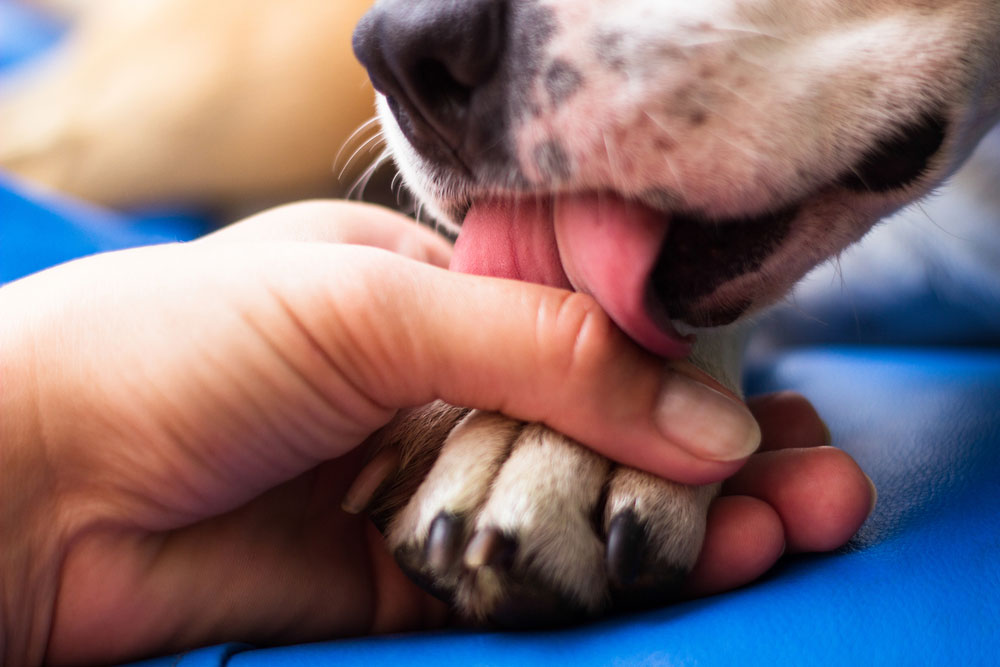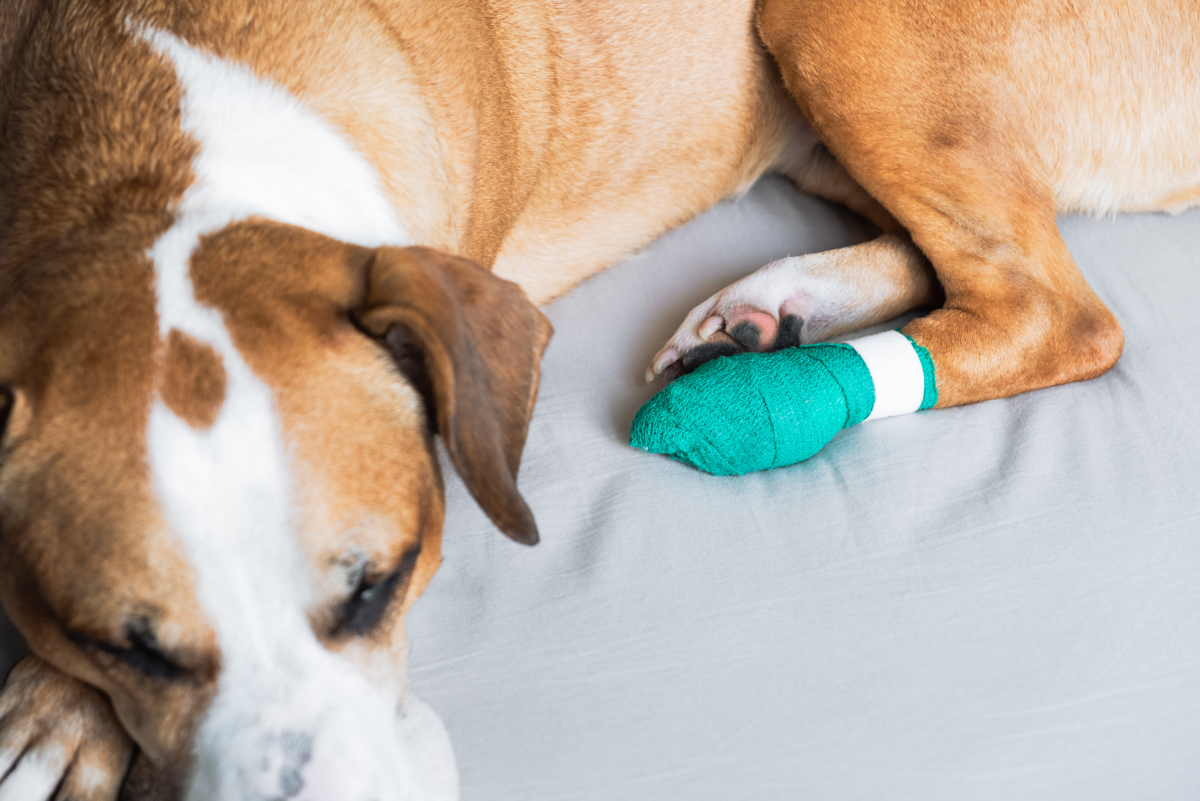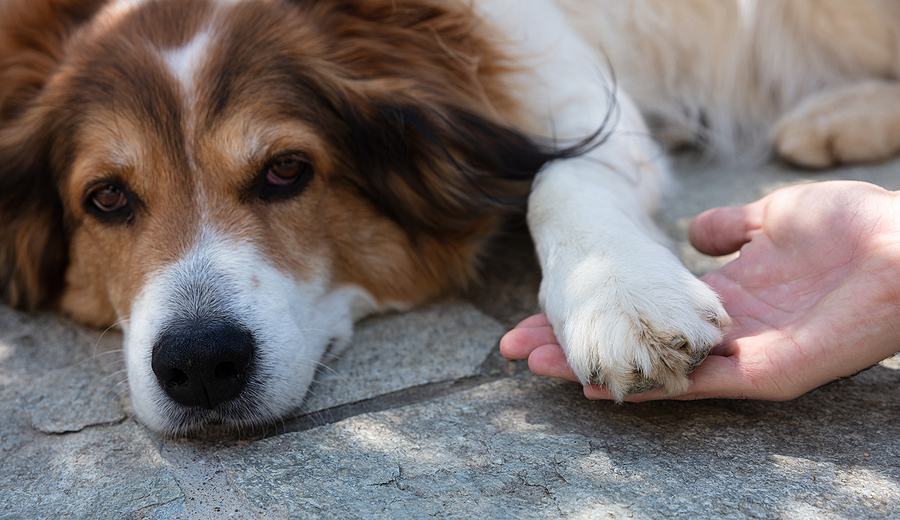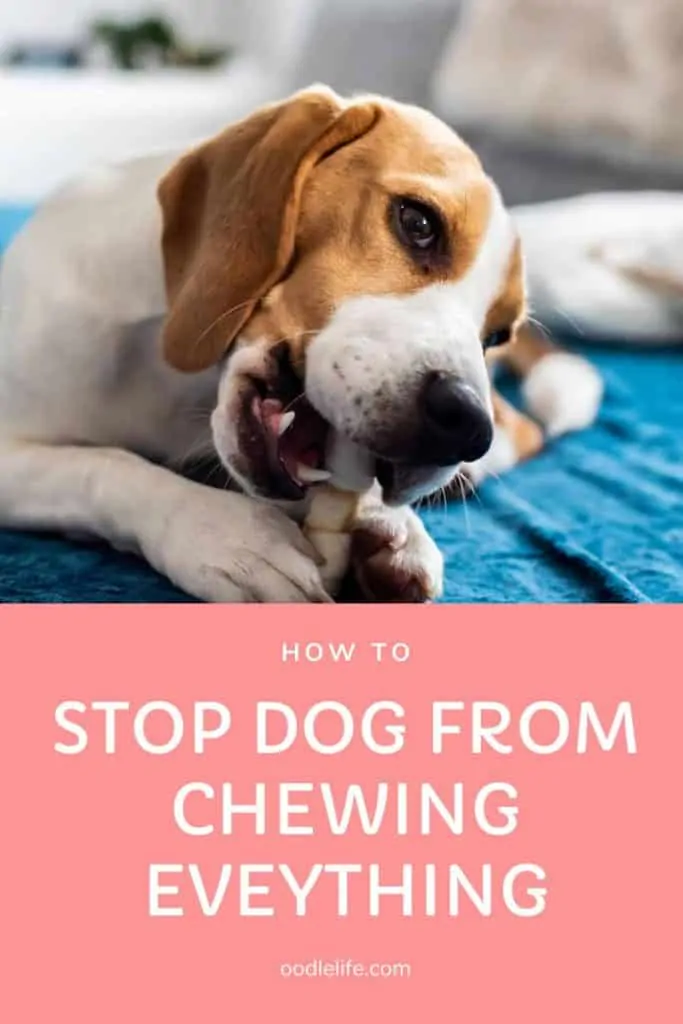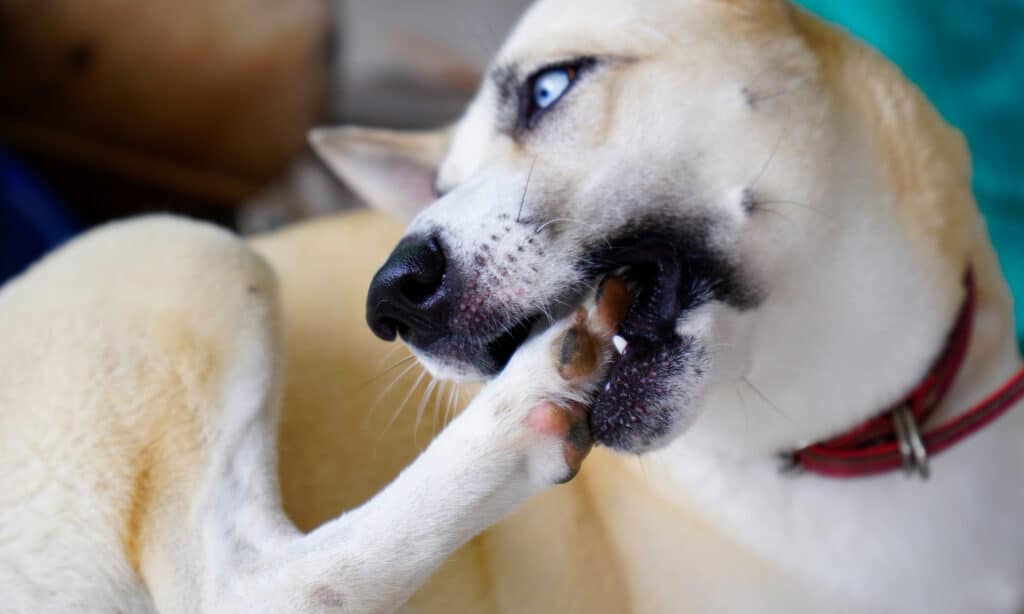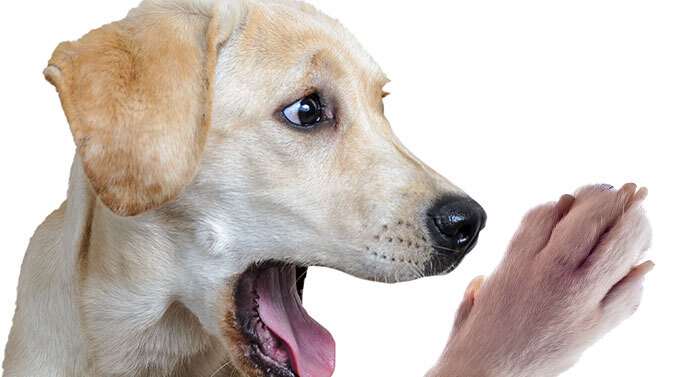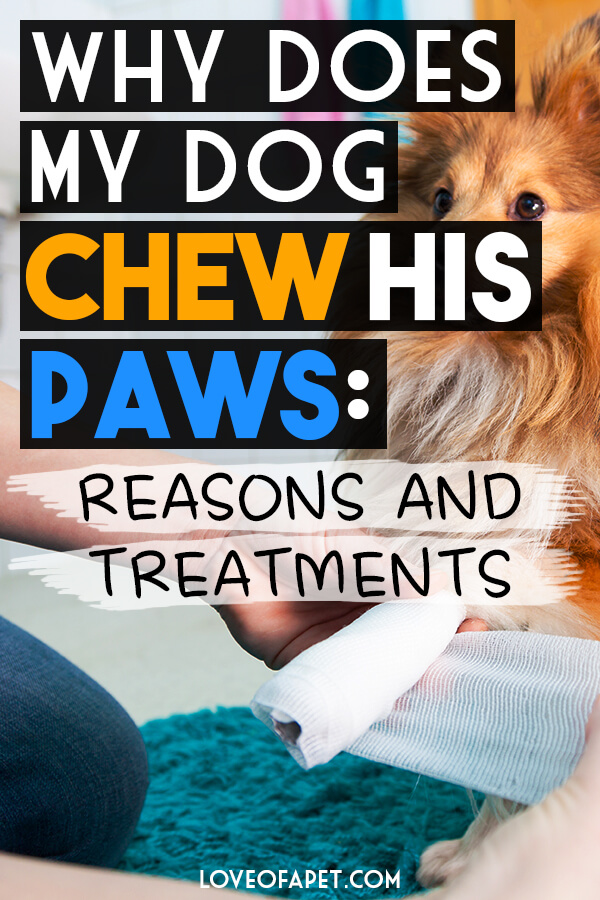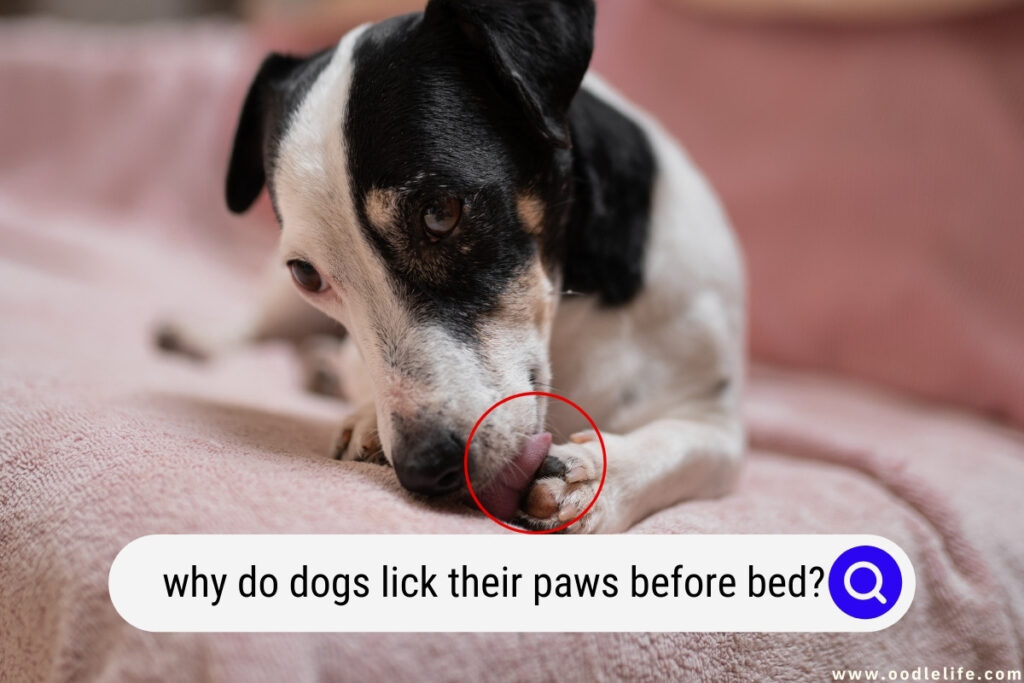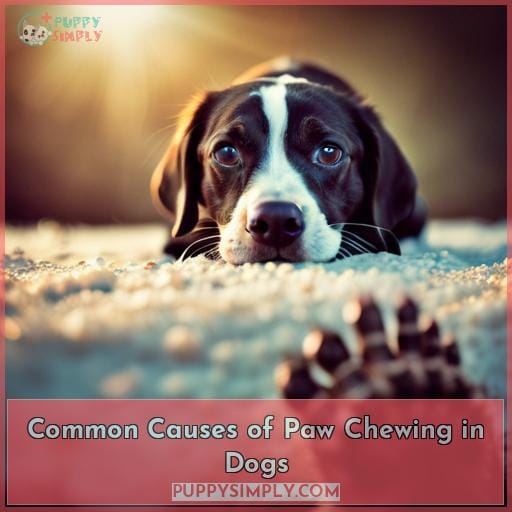How Do I Stop My Dog From Chewing His Paws

Imagine the rhythmic tap-tap-tapping of your dog's paw against the hardwood floor. It's a sound that starts subtly, almost unnoticed, but soon escalates into a persistent, worrisome chorus. You glance down to see your beloved companion meticulously gnawing at their paw, their brow furrowed in concentration, leaving a damp patch of fur in their wake.
Paw chewing in dogs is a common, yet often complex behavior that can stem from a variety of underlying causes. This article explores the reasons behind this habit and provides practical strategies to help owners curb this behavior and improve their dog's well-being.
Unraveling the Mystery: Why Dogs Chew Their Paws
Understanding the root cause of your dog's paw chewing is the first and most crucial step in stopping the behavior. It's rarely a simple case of boredom. Instead, several factors could be at play.
Medical Reasons: A Trip to the Vet
One of the most common reasons for paw chewing is allergies. Just like humans, dogs can suffer from environmental or food allergies. These allergies manifest as itchy skin, often concentrated in the paws, leading to excessive licking and chewing.
According to the American Kennel Club (AKC), allergies in dogs can be triggered by pollen, dust mites, mold, and even certain ingredients in their food. The AKC website emphasizes the importance of consulting a veterinarian to identify and manage allergies effectively.
Parasites such as mites (like mange mites) or fleas can also cause intense itching. The itching sensation prompts dogs to relieve the discomfort by chewing on their paws. A vet can perform skin scrapes and other tests to rule out parasitic infestations.
Injuries, infections, and foreign objects are other possible medical causes. A small cut, splinter, or even a broken nail can cause significant discomfort and lead to paw chewing. Fungal or bacterial infections between the toes can also be incredibly irritating.
Important: Always consult your veterinarian to rule out any underlying medical conditions before attempting any behavioral modifications.
Behavioral Reasons: Beyond the Physical
If medical causes have been ruled out, the paw chewing may be behavioral. Boredom is a significant contributor, particularly in active breeds that require ample mental and physical stimulation.
Dogs left alone for long periods without adequate exercise or enrichment may turn to paw chewing as a way to occupy themselves. According to the American Society for the Prevention of Cruelty to Animals (ASPCA), providing plenty of toys, puzzle feeders, and interactive games can help prevent boredom-related behaviors.
Anxiety and stress can also lead to compulsive behaviors like paw chewing. Changes in routine, loud noises, or separation anxiety can trigger stress in dogs. Chewing, in this context, becomes a self-soothing mechanism.
Dogs with a history of trauma or neglect may also exhibit compulsive behaviors, including paw chewing, as a way to cope with their past experiences. In some cases, paw chewing can become a deeply ingrained habit, even after the initial trigger has been removed. This is especially true if the behavior has been reinforced by the dog receiving attention, even negative attention, from their owner.
The Solution: A Multi-Pronged Approach
Stopping paw chewing requires a holistic approach that addresses both the physical and behavioral aspects. It’s usually not a quick fix and requires patience and consistency.
Addressing Medical Issues
Work closely with your veterinarian to diagnose and treat any underlying medical conditions. This may involve allergy testing and management, parasite control, or treating infections.
Medications like antihistamines or corticosteroids may be prescribed to relieve itching from allergies. Topical treatments, such as medicated shampoos or creams, can also help soothe irritated skin. Regular foot soaks with Epsom salts can help soothe irritated paws and prevent infections.
Managing Environmental Factors
If your dog has allergies, try to identify and minimize exposure to allergens. This may involve using air purifiers, washing your dog's bedding regularly, and wiping their paws after outdoor walks.
Switching to a hypoallergenic dog food may also help if food allergies are suspected. Always consult your veterinarian before making any dietary changes.
Enrichment and Exercise: A Tired Dog is a Happy Dog
Ensure your dog receives adequate physical and mental stimulation. Provide daily walks, playtime, and puzzle toys to keep them entertained and prevent boredom. Consider enrolling your dog in obedience classes or agility training to provide mental stimulation and strengthen the bond between you.
Positive reinforcement training can be incredibly effective in redirecting your dog's attention away from their paws. When you see your dog start to chew, redirect their attention with a toy or a command, and reward them when they comply.
Breaking the Habit: Behavioral Modification
If the paw chewing is a deeply ingrained habit, you may need to employ behavioral modification techniques. This may involve using deterrents, such as bitter apple spray, to discourage chewing. Bitter apple spray is a safe, non-toxic product that tastes unpleasant to dogs, discouraging them from licking or chewing the treated area.
However, it's essential to address the underlying cause of the behavior rather than just masking the symptoms. If anxiety is a contributing factor, consider using calming aids such as pheromone diffusers or anxiety vests.
In severe cases of compulsive paw chewing, a veterinary behaviorist may be needed. A veterinary behaviorist can assess your dog's behavior and develop a customized treatment plan that may include medication and behavior modification techniques.
Protective Measures: Preventing Access
During the treatment phase, you may need to use protective measures to prevent your dog from further irritating their paws. Consider using a cone (Elizabethan collar) or dog boots to prevent access to the paws. Dog boots can also be helpful during walks to protect the paws from irritants such as hot pavement or ice.
A Paw-sitive Outlook
Stopping your dog from chewing their paws can be a challenging but rewarding journey. By understanding the underlying causes, addressing medical issues, providing adequate enrichment, and employing behavioral modification techniques, you can help your dog break this habit and live a happier, healthier life.
Remember that patience and consistency are key. It may take time to identify the root cause of the behavior and find the right combination of treatments. But with dedication and love, you can help your furry friend find relief from their itchy paws and enjoy a more comfortable and fulfilling life. And the sound of silence, replacing the incessant tapping, will be music to your ears.


